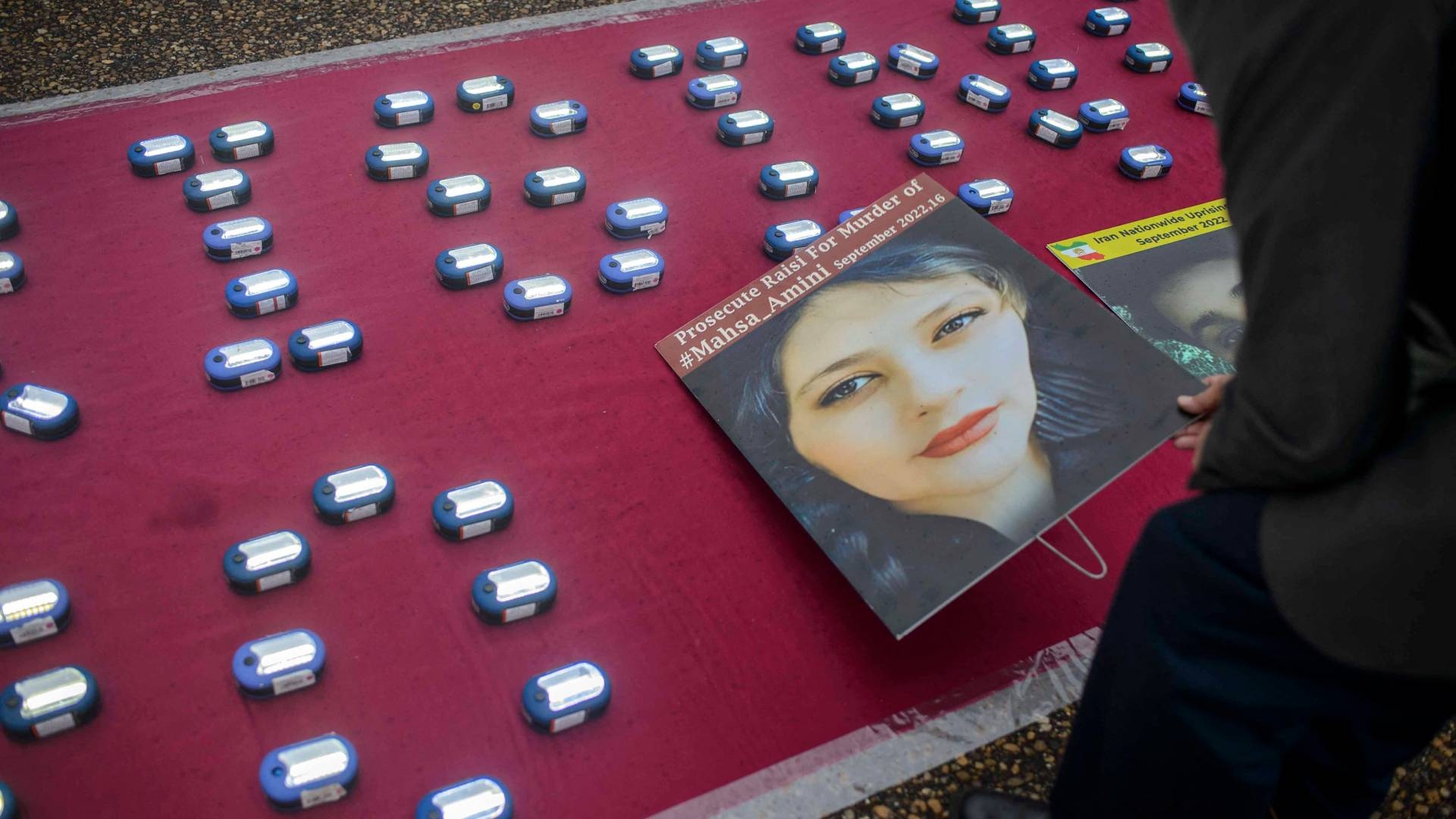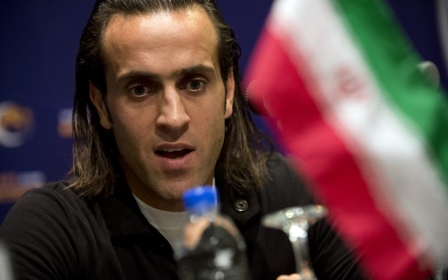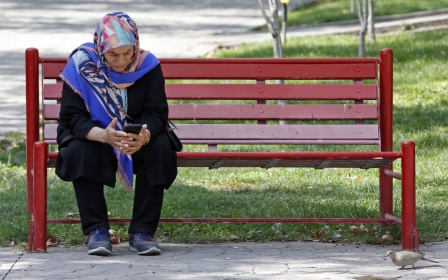Iranian press review: Mahsa Amini's father says family still seeking answers

Mahsa Amini's family still seeking justice
Amjad Amini, the father of Mahsa Amini, who died in police custody after being arrested for wearing her hijab in an "improper" way, has said that the Iranian government's claims about appeasing his family are "not true", Rouydad 24 reported.
Amini, a 22-year-old woman from the Kurdish city of Saqqez in western Iran, was arrested by Gasht-e Ershad, also known as the "morality police", in Tehran on 13 September. Her death soon afterwards sparked a wave of anti-government protests, which the establishment has brutally suppressed.
People close to the Amini family had previously reported that security forces had pressured her family not to give interviews to the media or provide any information about how the judicial system processed their daughter's case.
'I went to the forensic offices and other offices several times, but they didn't give us any answers'
- Mahsa Amini's father
Amini's father said that government officials had not responded to demands for information on what happened to his daughter while she was in the custody of Gasht-e Ershad.
New MEE newsletter: Jerusalem Dispatch
Sign up to get the latest insights and analysis on Israel-Palestine, alongside Turkey Unpacked and other MEE newsletters
"I went to the forensic offices and other offices several times, but they didn't give us any answers, and they sent me on a fool's errand," Rouydad 24 quoted Amini as saying in an exclusive interview.
"They kept telling me, 'Wait for two more weeks, wait for another three weeks,' and already the time is passed," he said.
Establishment apology long overdue
In a statement about the ongoing anti-government protests in Iran, Hassan Khomeini, a grandson of Ruhollah Khomeini, the founder of the Islamic Republic, has said the establishment "has long forgotten to apologise to people in times when it was needed".
Khomeini's statement to Khabar Online came a day after Ali Khamenei, the country's supreme leader, accused foreign governments of organising and leading the protests following Mahsa Amini's death.
Khomeini, close to reformist politicians, urged the establishment to listen to what ordinary citizens demanded.
"The establishment, in its entirety, must start a dialogue with the people and listen to what they say causes them pain," wrote Khomeini.
Stressing that the main issue facing Iranians was the economic crisis, Khomeini added that the government had also deprived citizens of their right to freedom of expression.
"A major part of protests and people's disappointment has occurred because people found all the legal ways to show their opposition [to the government] shut," read Khomeini's statement.
Internet blockade increasing economic pain
As anti-government protests entered a third week in Iran, the internet shutdown - which includes a blockade of WhatsApp, Instagram and Telegram - has caused millions of dollars worth of damage to the country's already troubled economy.
Officials say the shutdown of the internet in several cities and the ban on using messaging platforms will continue unless the protests end.
"The platforms - some of them American - have fuelled the riots... and while these platforms cause damage to the country, the restrictions on them will continue," Issa Zarepour, the communications and information technology minister, was quoted as saying.
According to local media, more than 11 million Iranians make a living through small businesses on Instagram.
During the 2019 internet blockage in Iran, NetBlocks, an internet monitor based in London, reported that "the economic damage to the Islamic Republic amounts to around $61m per day".
Authorities have used previous unrest to introduce homegrown platforms for internet marketing and business, which remain under the government's control.
Local media say the government has used occasions such as the most recent protests to push citizens to use its platforms, partly to turn the temporary prohibition on foreign applications into a permanent ban.
Idea of legal protests ridiculed
Ahmad Zeidabadi, a prominent Iranian political activist, has rejected offers from authorities to provide a legal platform for people to protest, saying that for officials there was no dividing line between what constituted a protest and a riot.
In an editorial published in the Ham Mihan daily, Zeidabadi underlined that even if the authorities supported people's peaceful protests on paper, they would still react to them as riots.
"Iran's Islamic Penal Code about freedom of expression is written in a way that it does not leave any room for the softest criticism [of the system], let alone opposing to and protesting against the government's actions," wrote Zeidabadi.
Zeidabadi, who has been arrested several times by the security forces, forcibly fed during a hunger strike in prison, and spent more than six years in jail, said the government was unable to tolerate even the slightest opposition.
"Let's just take the example of [being accused of] propaganda against the system," he wrote. "Could anyone oppose, or criticise, any of the government's policies without being accused of accomplishing propaganda against the system?"
In the article, Zeidabadi also advised officials to look towards countries in the Global South, including Bangladesh, to learn how to provide freedom of speech to people.
Middle East Eye delivers independent and unrivalled coverage and analysis of the Middle East, North Africa and beyond. To learn more about republishing this content and the associated fees, please fill out this form. More about MEE can be found here.





